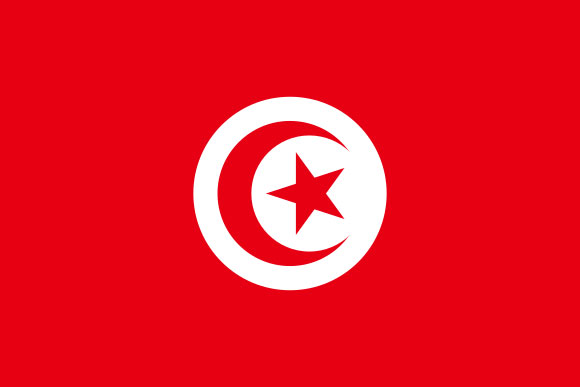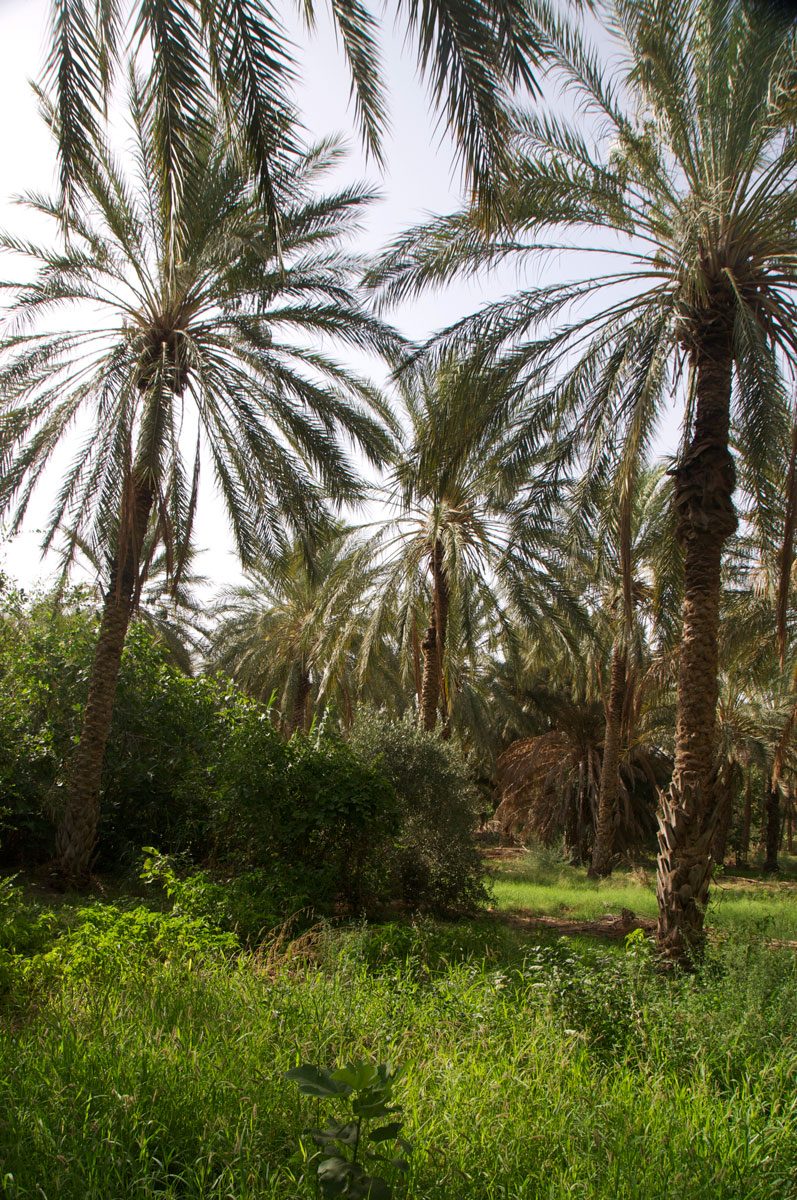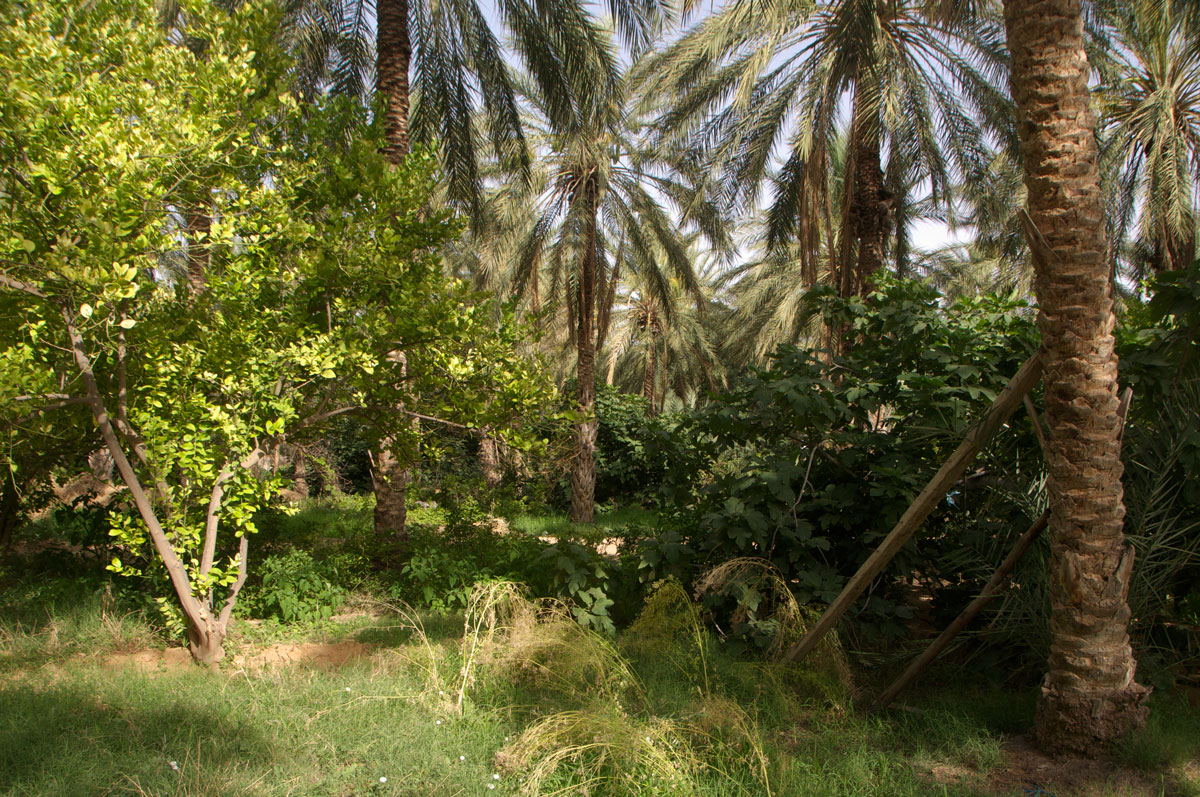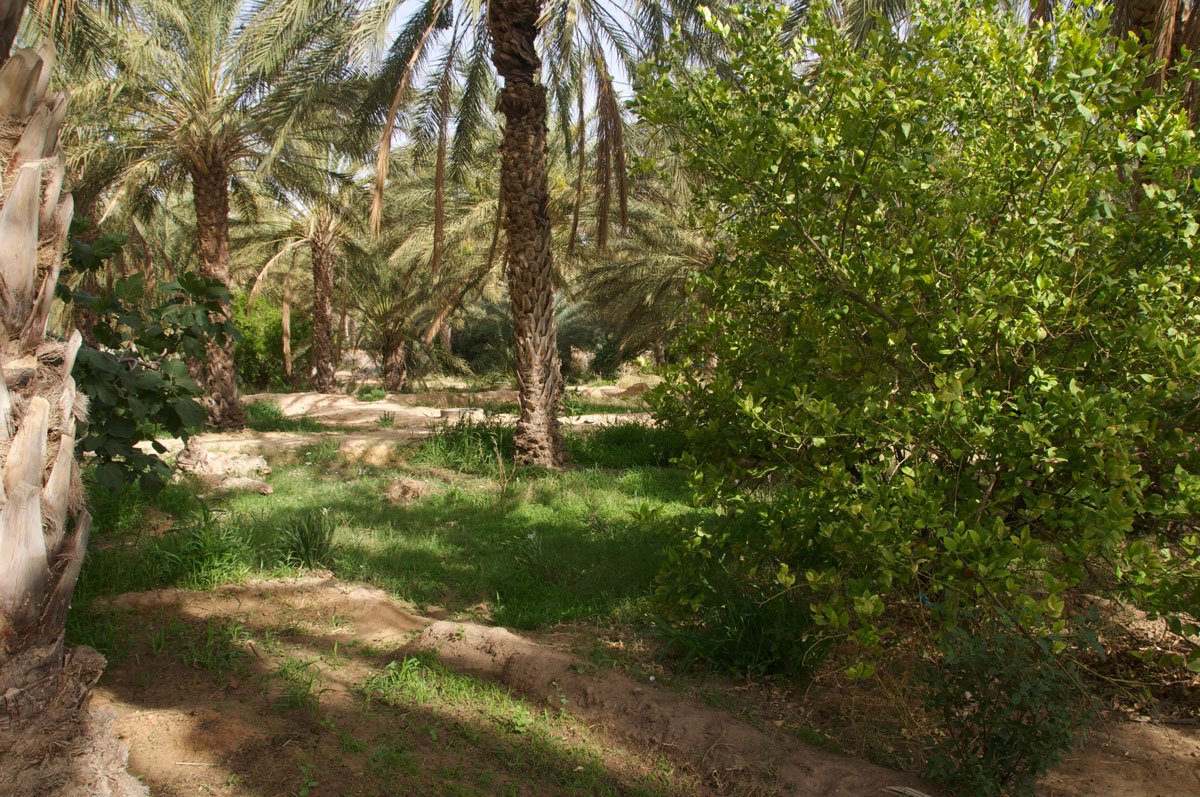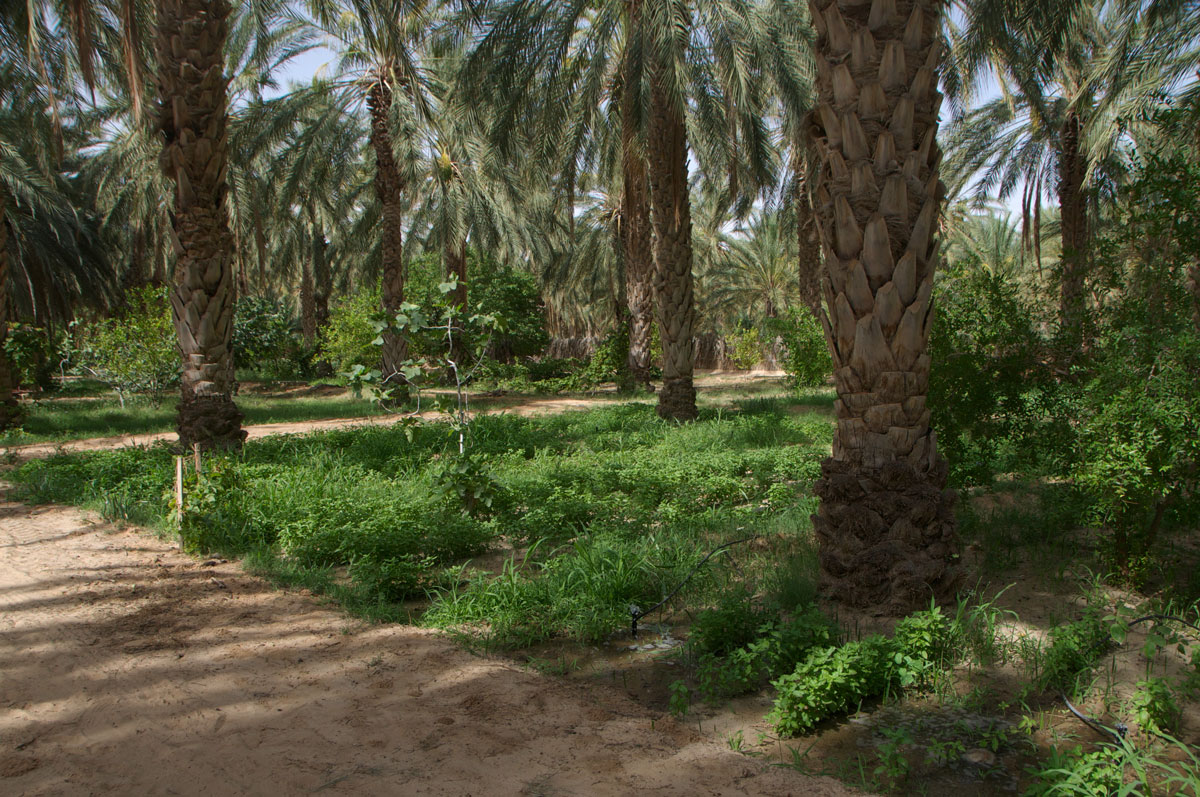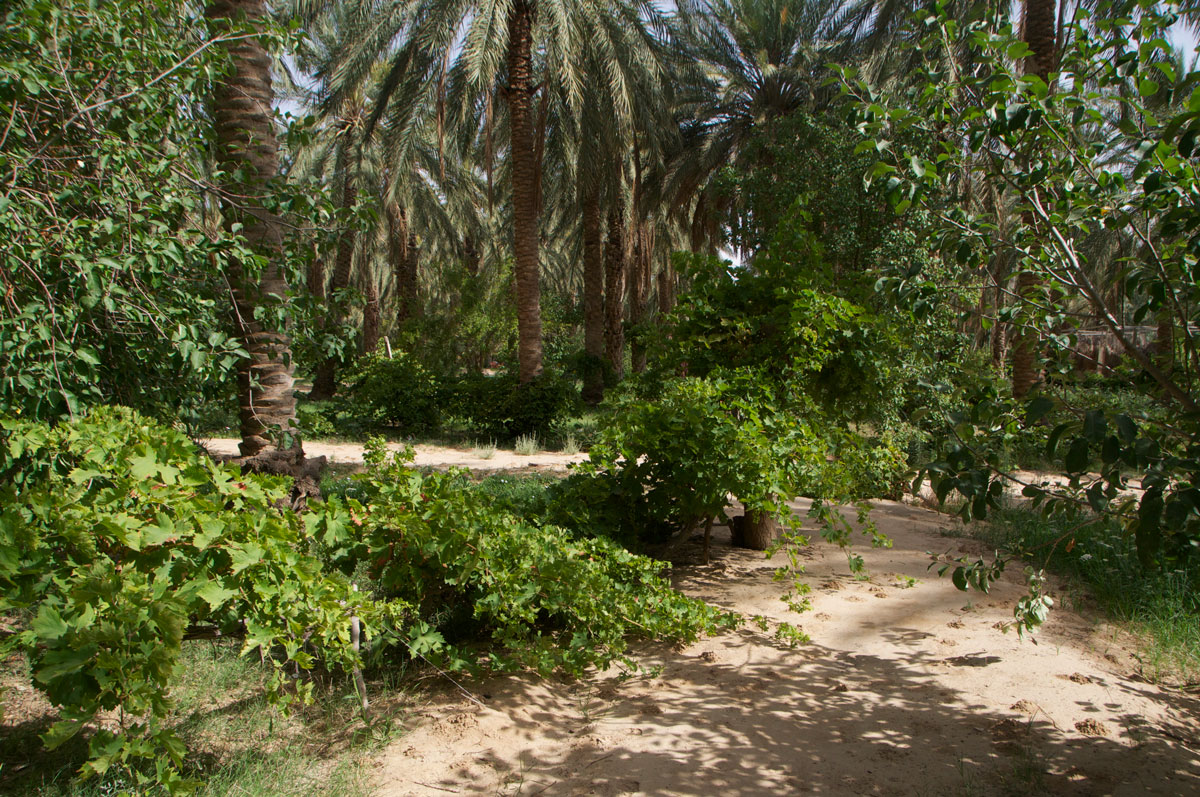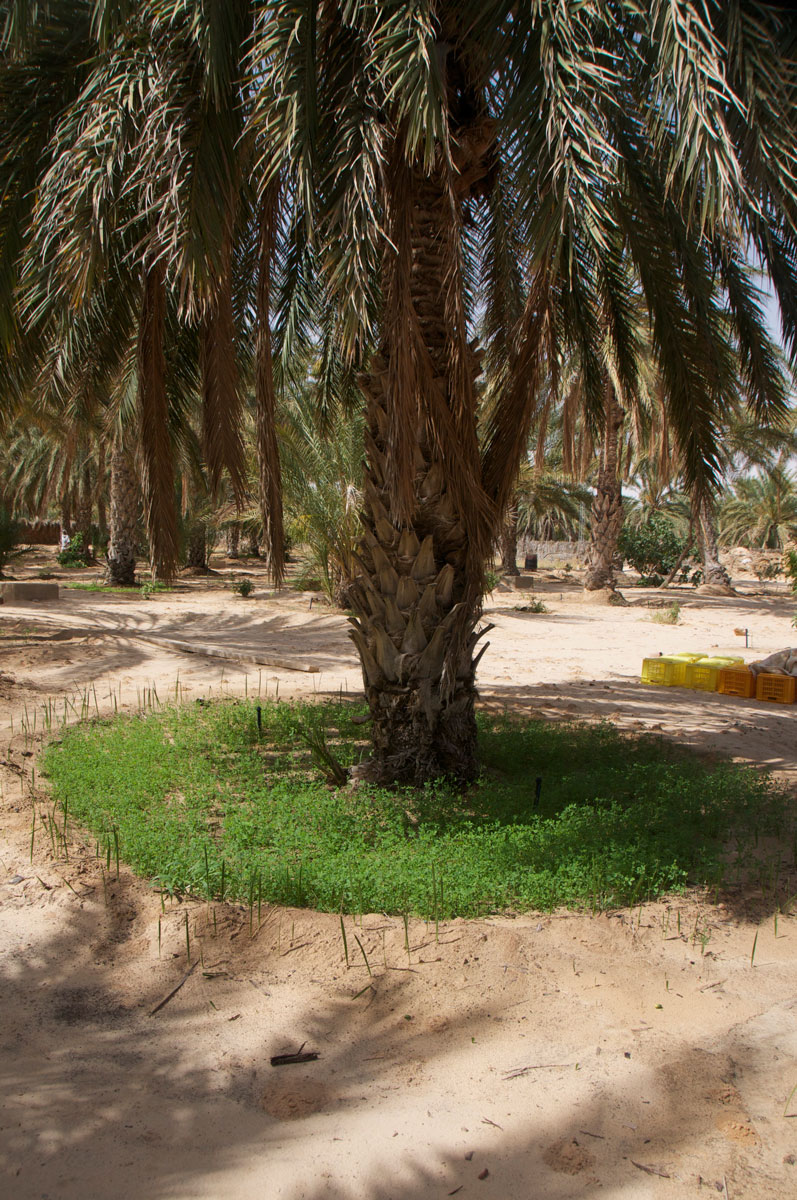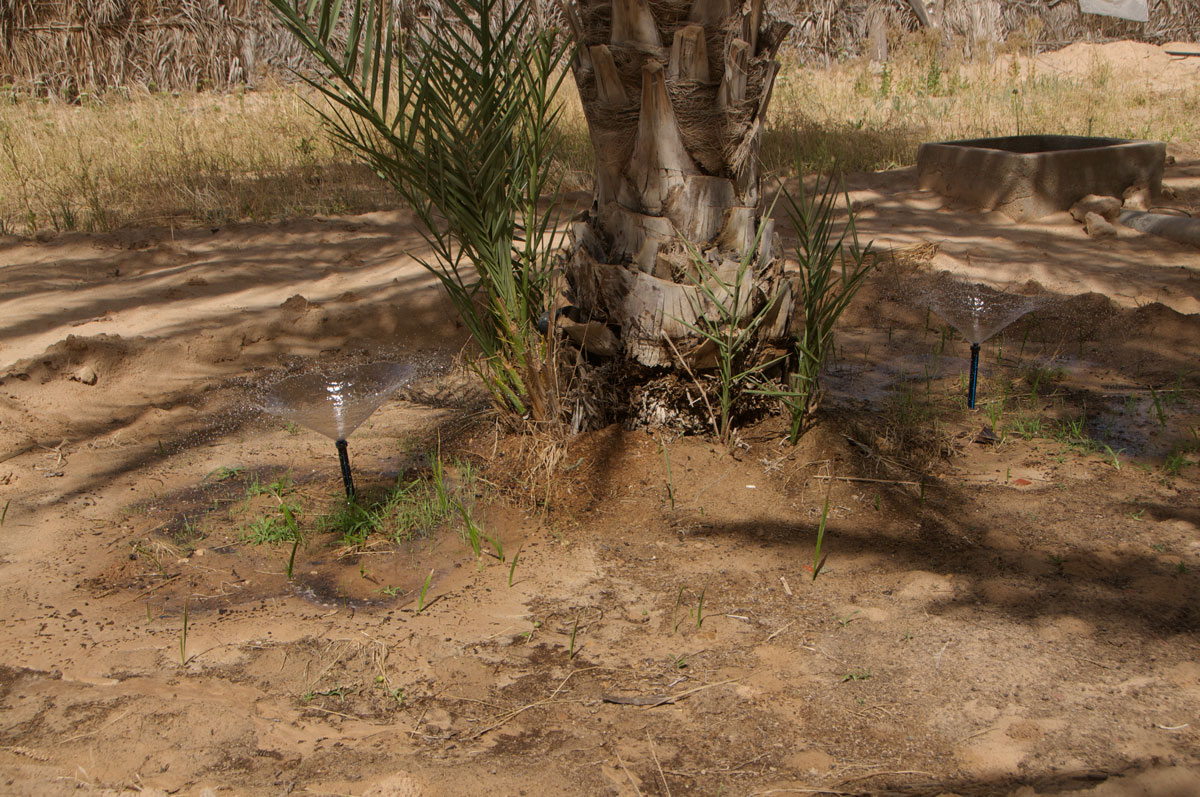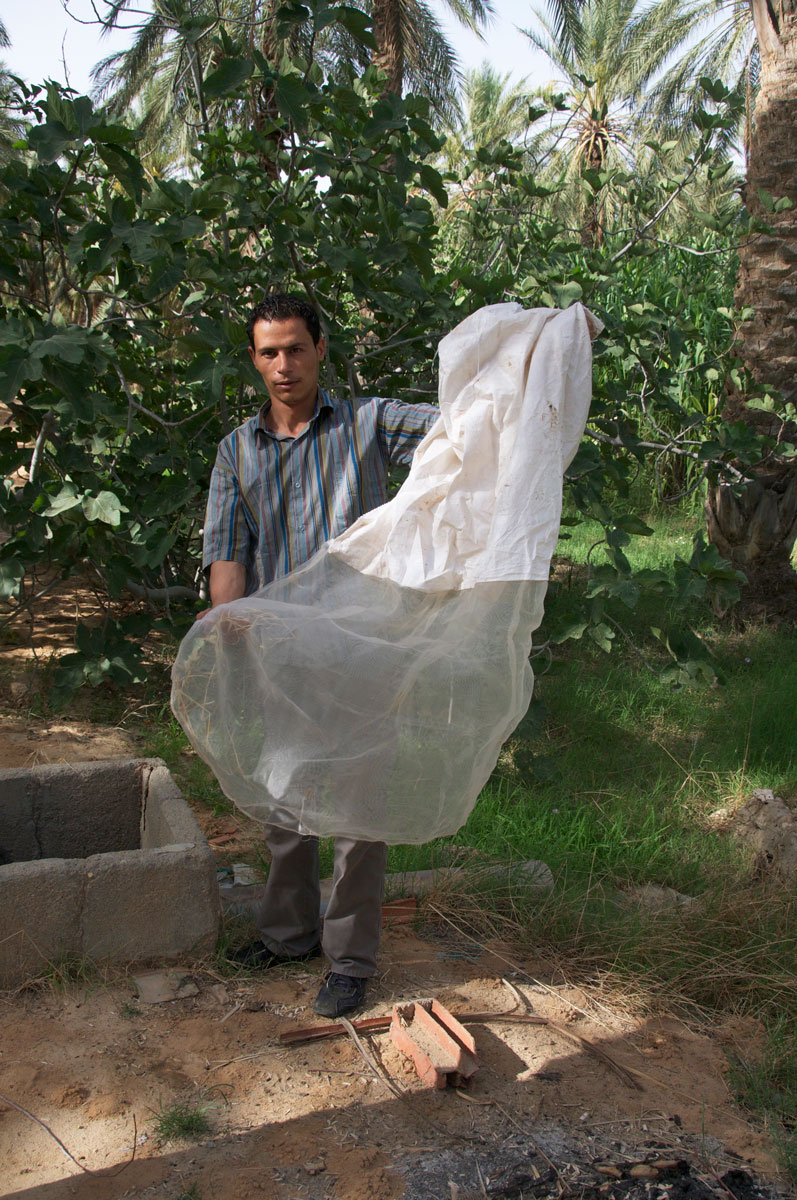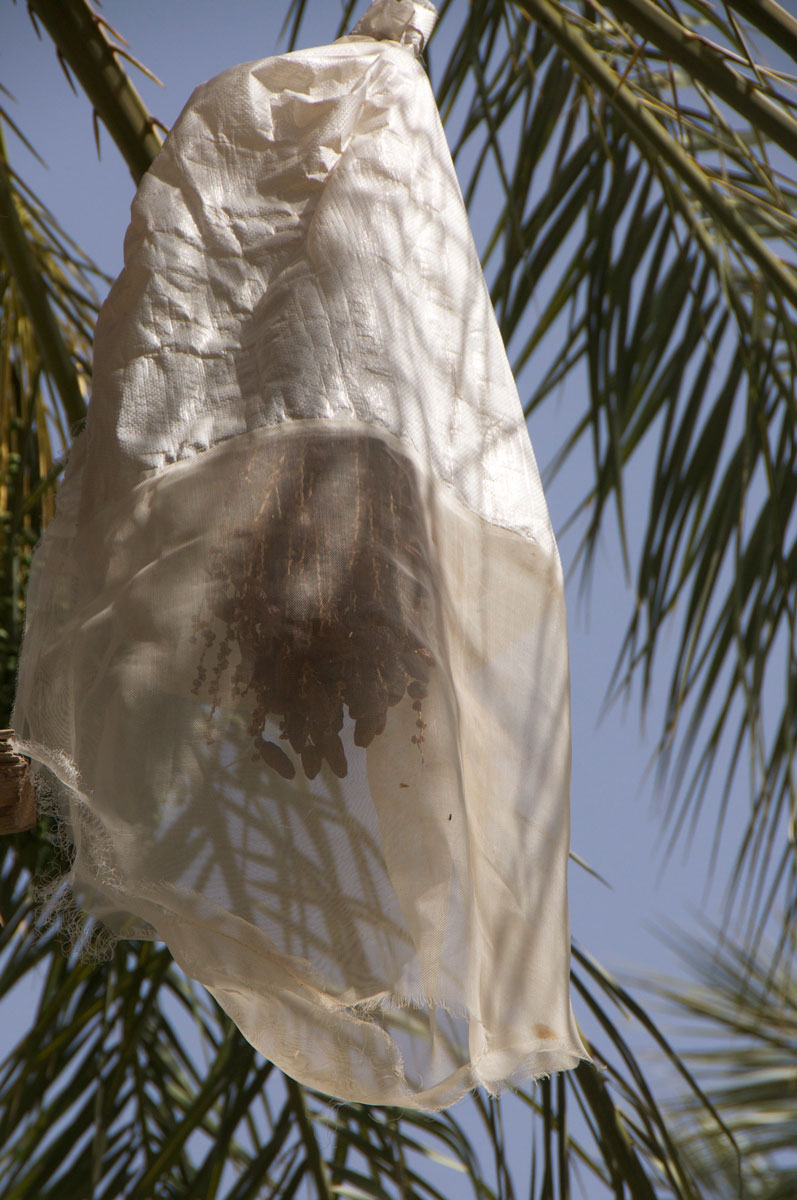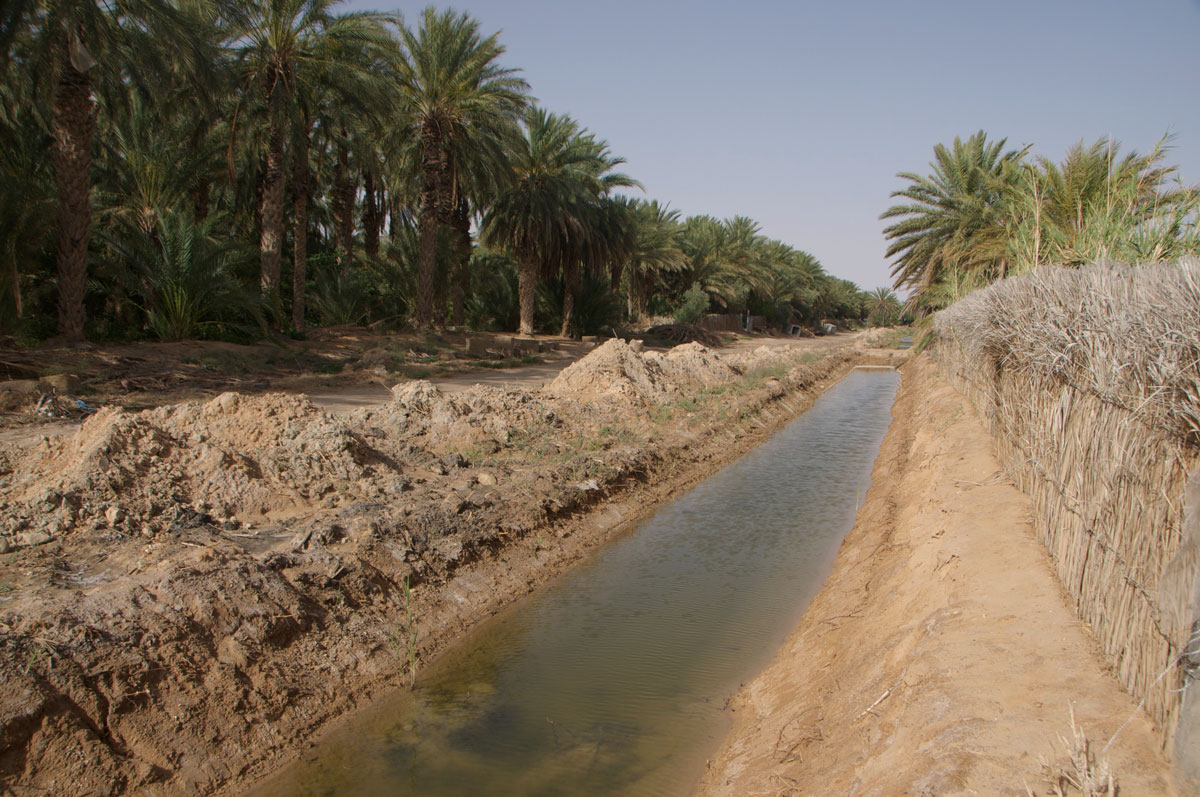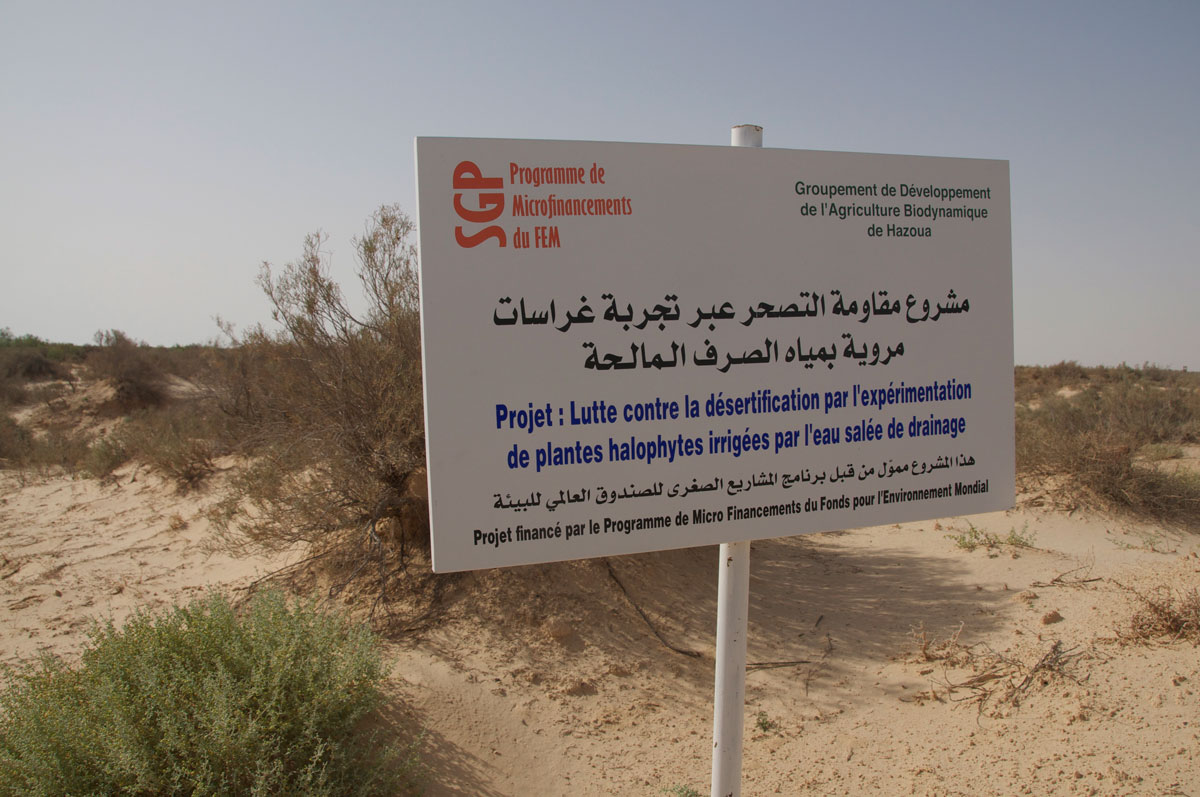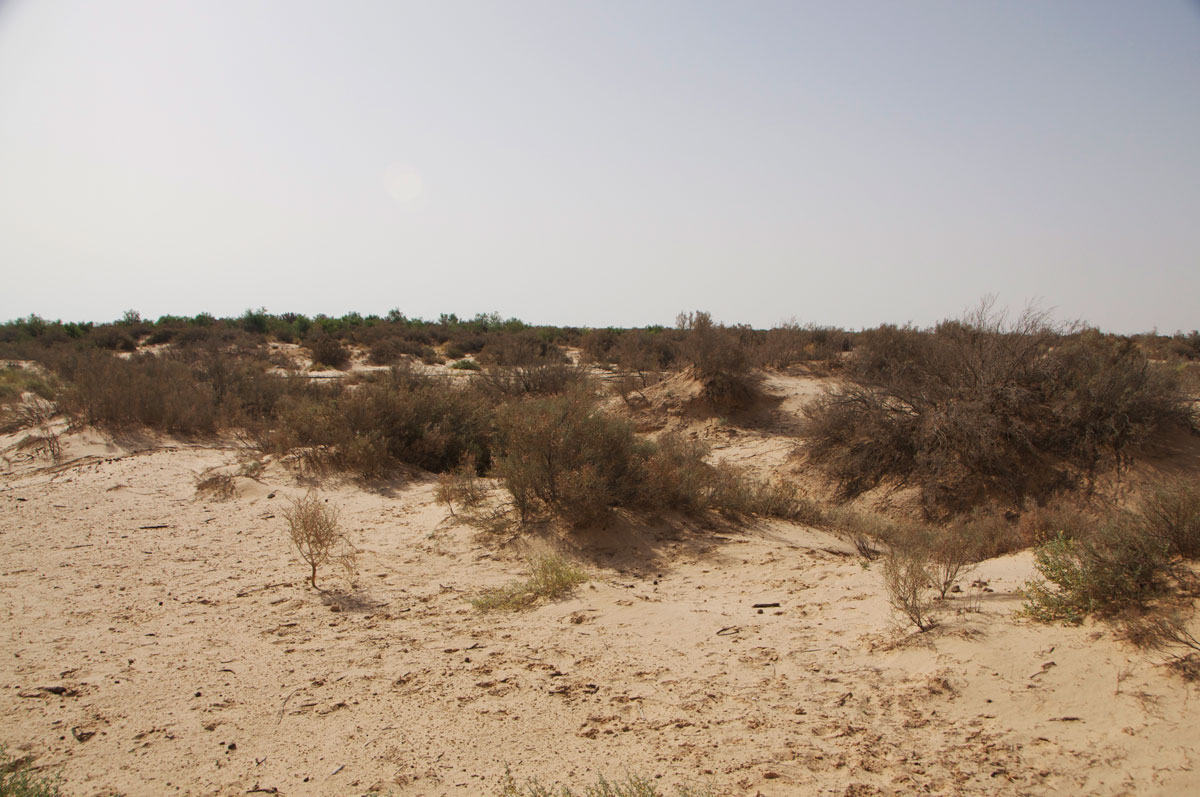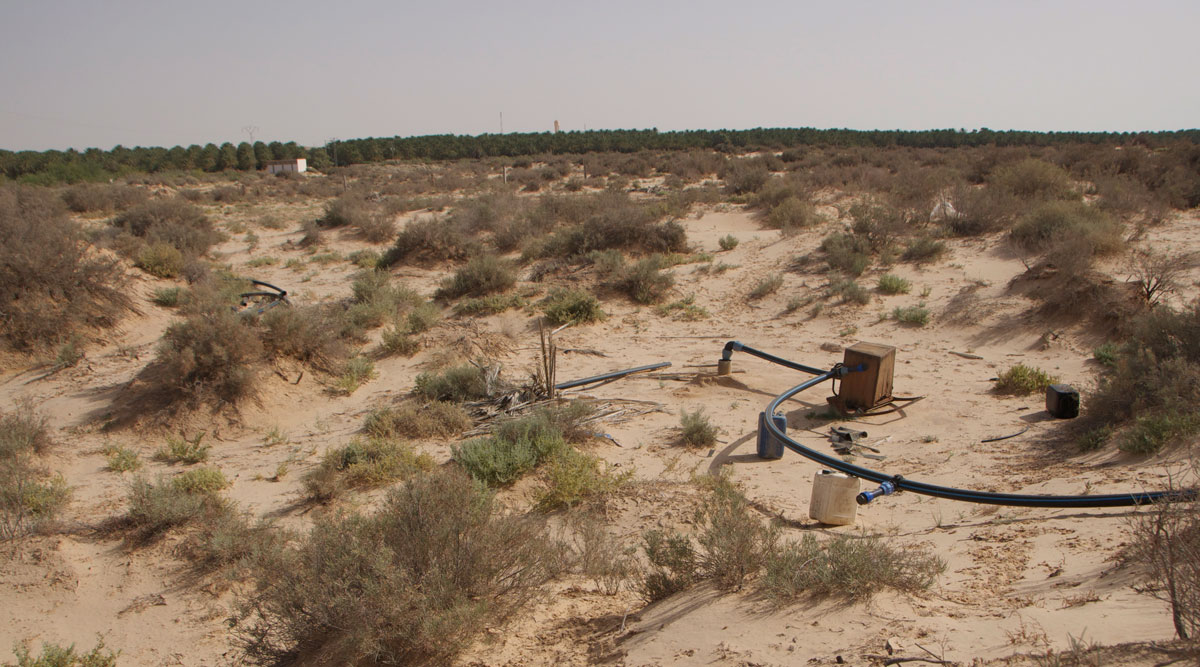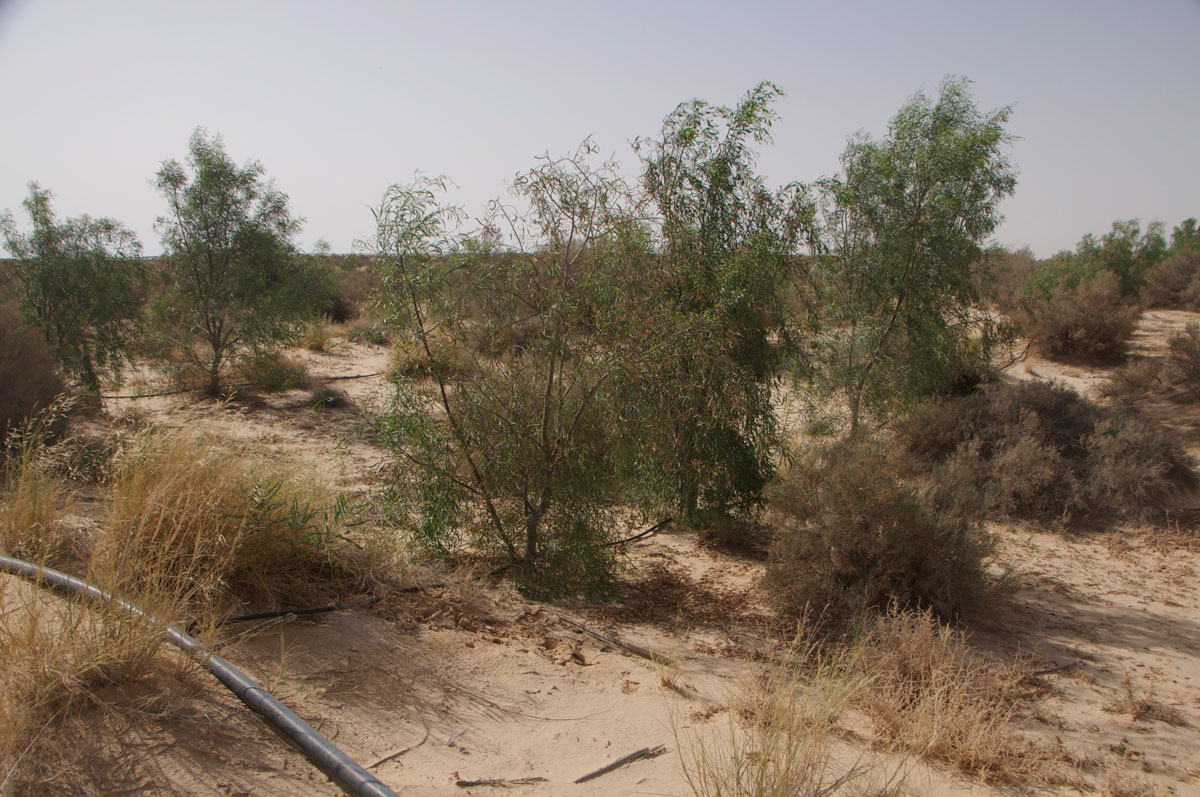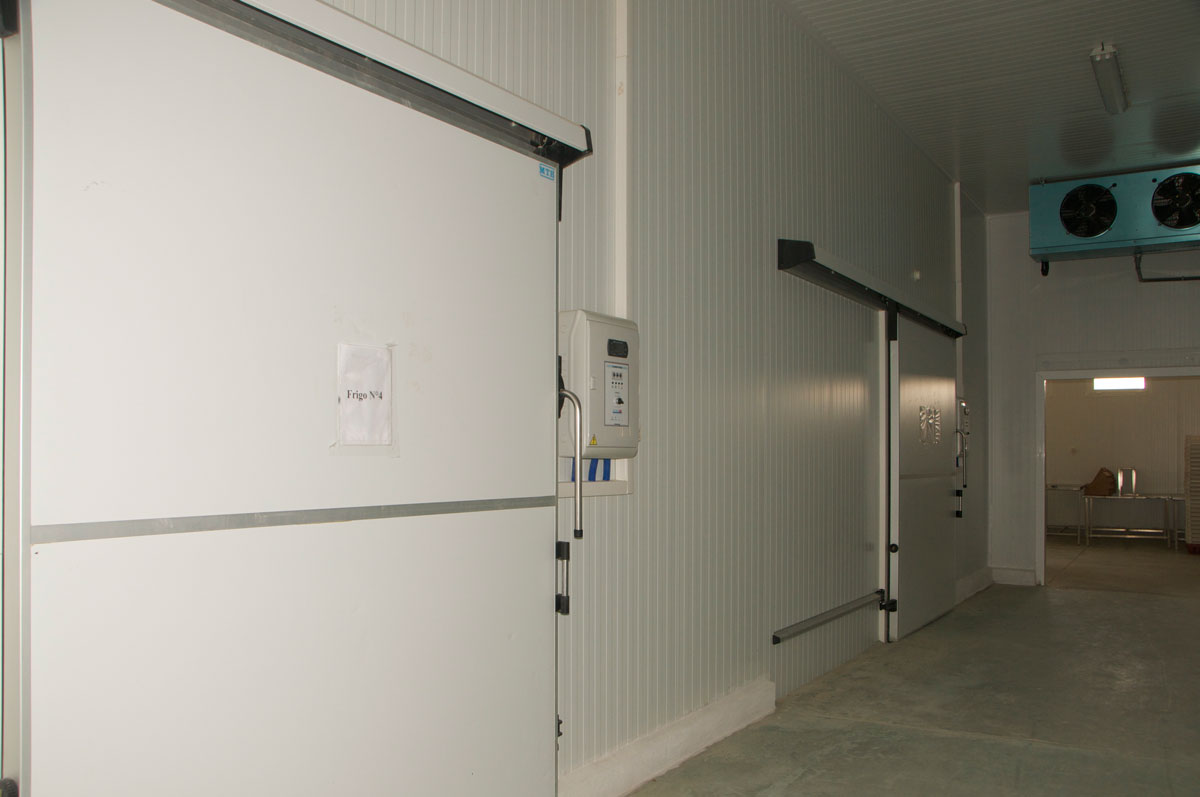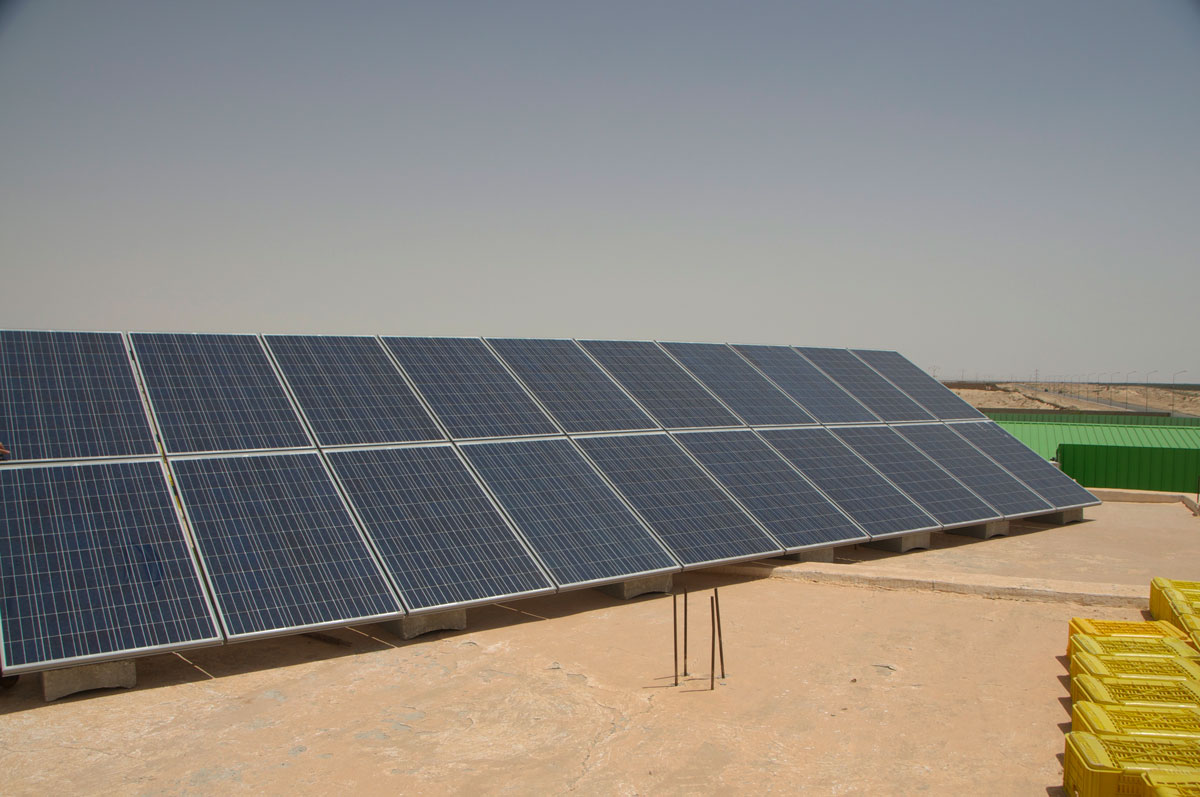From the tunisian desert to the European market ; Beni Ghreb, an example of economic development
Beni Ghreb project : local roots, organic farming orientation, giving stability
Beni Ghreb project is located in Hazoua oasis, 60 km in the West from Tozeur, close to the algerian boundarie.
This project is based on :
- A group of organic dates producers (the GDA)
- A processor working only with the GDA
In 2015 the GDA was composed of 94 producers. Each one is the owner of a 1 ha plot giving around 10 tons of dates.
This project is part of a sustainable development strategy ; Beni Ghreb is a small entity, very stable due to the long-term organic farming approach.
The relation processor – GDA is built for long time, giving the stability. That was reinforced by :
- The processor and the executives of the company were members of the GDA
- GDA and processor shared the same vision – a biodynamic approach
Beni Ghreb was certified by Ecocert for the European market, Bio Suisse for Switzerland and by Demeter for the Biodynamic approach.
It was also certified Fair Trade.
Beni Ghreb project : an answer to access the market and to deal with the production environment degradation
In 1990, some producers of the oasis turned to the organic farming in the way to get better prices for their products and to solve some ecological issues during the production. It has taken 12 years before the GDA creation.
A strong ecological involvement
It is a system based also on the traçability of product, the product and the environment ameliorations.
Beni Ghreb worked with local and national research centres to ameliorate the quality of dates and the oasis ecology.
The water lack was predominant ; water was pumped at great depth and was salted.
With the german technic cooperation (GIZ) and with the United Nation Development Program, they developped two projects :
- The recycling of salted water from drainage of the oasis
- The rehabilitation of the oasis with multi crops stepped irrigated in a better way
An important economical development limited by the storage capacity for dates after the harvest and by the irrigation during the production period
In 2002, the GDA production was 64 tons and the storage was 90 tons.
In 2013, the production was around 1000 tons and the storage was 600 tons ; 40 % of the products was sold on local market without the organic certification valorisation.
In 2014, the storage was 1000 tons in order to cover all the production.
Dates were harvested from October to December, but processing was along the year. So the process unit was based on its capacity of cold storage.
Since 2008, the dryness reduced the production by ha.
At the beggining the dates were with 19 % of humidity but in 2008, the rate was 12 – 13 % due to the lack of water; so the production decreased from 10 tons to 4-6 tons/ha.
The rural exodus : a fruit of the dryness
In the past, 3 families could live on the one plot production in the oasis with the multi steps crops system.
Now, with the lack of water, only date trees are cultivated. That covers the fees for only one family, giving a massive rural exodus.
The owners of the plots came only when they irrigated their parcel, every 13 days.
Pest damages which decreased the production
Pest damages were in addition to the lack of water. Only 42% of the dates harvested reached the standard to be marketted – 58% were lost due to the worms.
Beni Ghreb developped a mosquito net to protect the clusters from July to August.
These nets are now used in all the oases given a push to the local economy.
An oasis attacked by the desert
In addition of the lack of water and pest dammages, Beni Ghreb was facing the silting of the oasis.
They implemented « a Green Belt » with local varieties of salt-resistant vegetals on 40 ha. This Green belt is irrigated with the recycling of salted water from drainages.
A strong social involvment
The rehabilitation of the oasis with a multi steps cultivations braked the rural exodus and developped a sustain local economy. Young adults were producing vegetables and fruits (lemons, pomegrantes,..) and selling it.
Beni Ghreb is also a Fair Trade organisation, given correct prices to the producers.
Beni Ghreb : a guarantee of quality, a requested mark
After 13 years of functionning Beni Ghreb is well-known for :
- The quality of the dates
- Its strong social involvment
- Its environmental involvment
- Its applied researches given innovative systems
- Its share of the good practices
Beni Ghreb sold all its production and became a mark of quality. Customers wanted the quality « Beni Ghreb ». In 2015, the demand exceeded supply.
